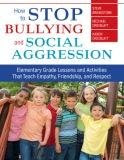Hey there- Very much enjoying these e-mails. Today I want to quibble with the wording you use in part of the latest installment - You say "These students will also...need to learn activities appreciated by their peers." As someone who works with lots of these passive types, I just want to throw in my 2 cents and say that NEED is a bit strong and may serve to make matters a bit worse at times. I talk to lots of parents who assume that if they get their kid involved in baseball or soccer or some other popular activity, that they will have a common frame of reference with more typical and more confident kids. It's often well intended but what lots of these parents ignore is that their kids often have absolutely no interest in these activities. So what happens is that they go, do a bad job either intentionally or unintentionally, have another failure experience both physically and socially, and then have something else to be pissed at their parents for. It can also provide grist for the mill when kids suspect that their parents want to change them into someone they're not. I usually phrase it to parents that it would make matters easier for everyone if their kids learned activities that everyone appreciates but that if it starts to feel like they're trying to force a square peg into a round hole - maybe it's time to punt. I also know some kids who do pretty well socially even though they suck at sports and don't have any interest in them. I think it's more important that, whoever they are, they develop and express a sense of confidence. And - not that I'm biased about this at all - I think you're right - they do NEED to develop more social competence.
Research has revealed common characteristics and profiles among students who are repeatedly bullied. One group is referred to as passive (a.k.a. submissive) victims, another as provocative victims. Clarifying the behaviors of a student who is repeatedly bullied can lead to strategies that reduce victimization.
Passive victims signal, through attitude and behaviors, that they are insecure and will not respond strongly if bullied. They are often:
Physically weaker than others their age
Afraid of being hurt, have poor physical coordination and don't do well in sports
Have poor social skills and have difficulty making friends
Cautious, sensitive, quiet, withdrawn and shy
Anxious, insecure, and cry or become upset easily
Have poor self-esteem
Have difficulty standing up for or defending themselves, physically and verbally
Provocative victims express behaviors that often irritate others and incite negative reactions. They often:
Have poor social skills -- appear to instigate the bullying
Are hyperactive, restless, and have difficulty concentrating
Are clumsy, immature, and exhibit irritating habits
Do not develop strong friendships
Are hot-tempered and attempt to fight back, ineffectively and sometimes entertainingly,
when victimized
Pick on smaller kids
If the bullied child has traits familiar to either list, altering their behavior may help reduce further bullying and develop self-esteem, resiliency and empowerment - qualities that will limit further victimization. For instance, teach passive victims to respond assertively to bullies with details that include specific language and how to express confident body language, eye contact, and tone of voice. These students will also need to practice social skills and learn activities appreciated by peers.
Provocative victims also need to learn age appropriate skills. They will need help from a caring adult to become aware of behaviors that generate negative reactions from others. They may also need help with emotional management techniques.
Social skills training should be incorporated into behavior plans, classroom lessons, and IEPs (Individualized Education Plans).
Although some behaviors do perpetuate bullying, no one ever deserves to be bullied!

